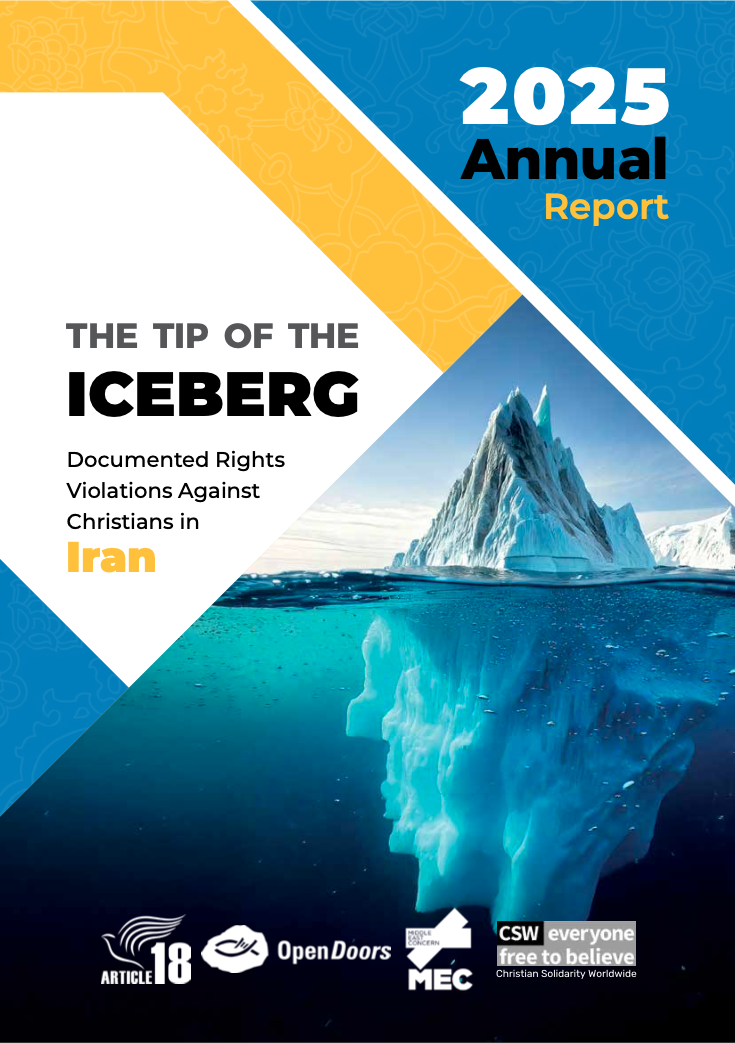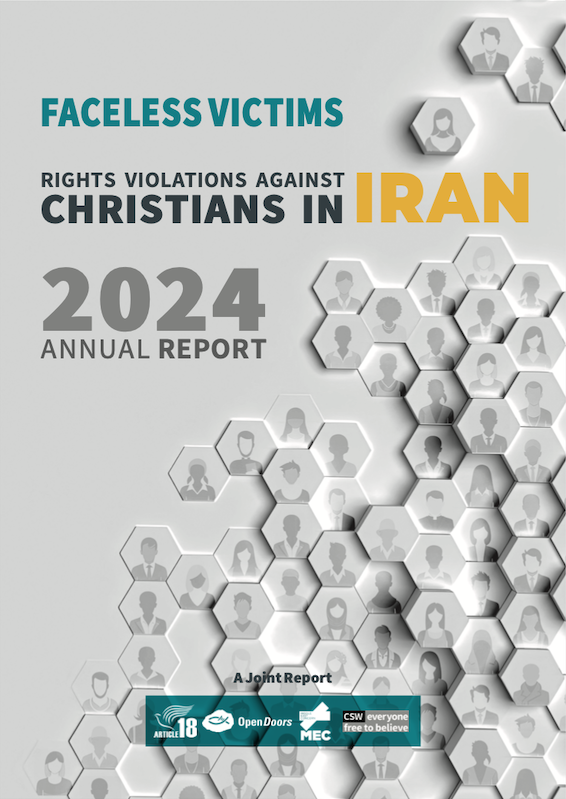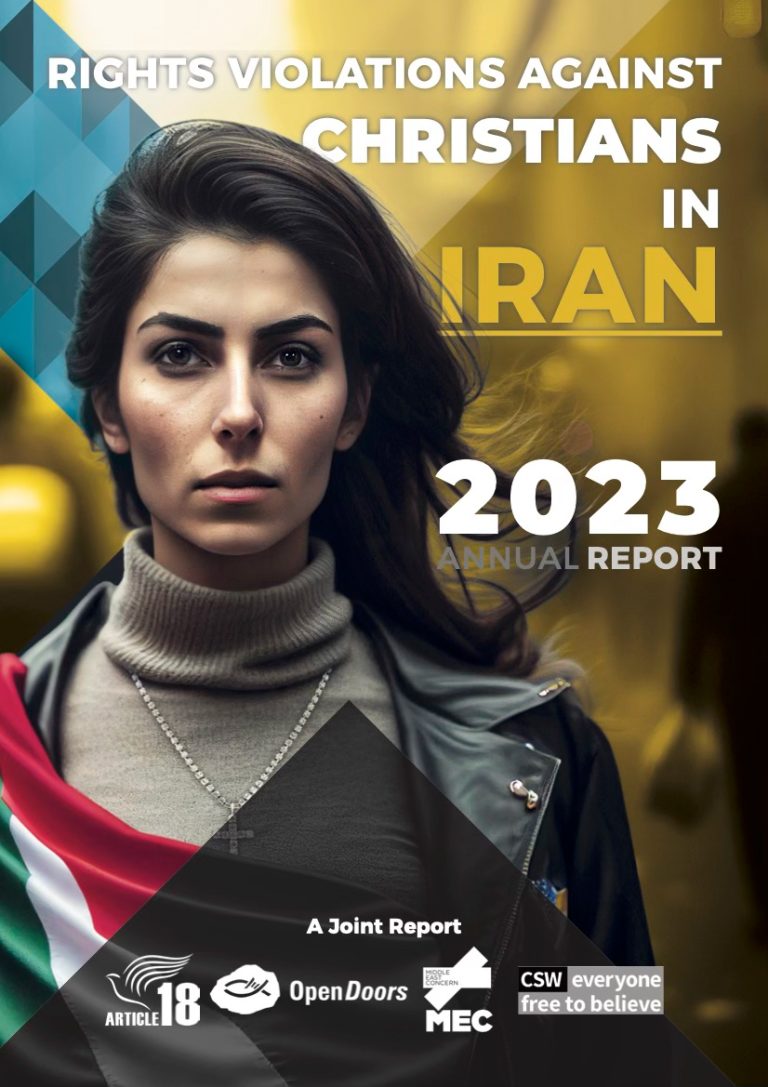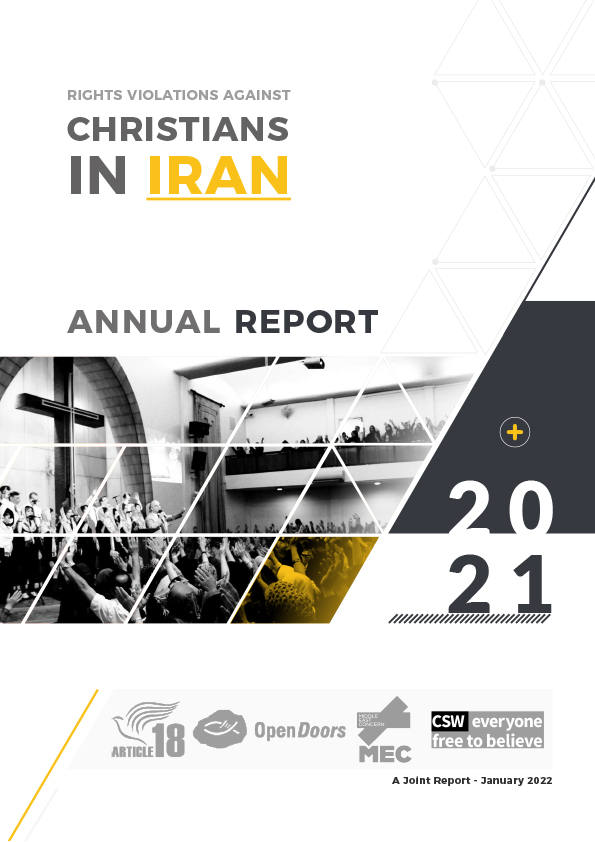Christians in Iran were sentenced to a combined total of over 250 years in prison in 2024, a sixfold increase compared to 2023, our newly released annual report reveals.
Ninety-six Christians were sentenced to a combined 263 years in prison last year, compared with 22 Christians sentenced to a total of 43.5 years in 2023.
The reason for the remarkable increase was partly due to the “huge uptick in arrests in the second half of 2023, which required judicial processing”, the report explains.
But there was also a notable increase in lengthy individual sentences, with five Christians receiving 10-year prison terms and another a 15-year sentence – all on account of charges related to their faith or religious activities.
The report, released in collaboration with Open Doors, CSW and Middle East Concern, is titled ‘The Tip of the Iceberg’, to draw attention to the fact that many more cases go unreported.
This was illustrated in 2024, the report notes, with the leaking of over 3 million case files of the Tehran judiciary between 2008 and 2023, including those of over 300 Christians.
“That these cases represented only the tip of the iceberg was demonstrated firstly by the fact that they related only to the Tehran region; secondly because the report authors documented a further 37 cases in Tehran over that 15-year period that were not included, involving at least 96 individuals; and thirdly because 58% of cases had gone unreported and were not previously known to the report authors,” the report states.
The second half of the report contains a detailed analysis of the leaked files, including 10 key insights regarding the systematic repression of Christian activities in Iran.
The analysis includes explanation of how Christians are vilified as members of a “sect” and a security threat; the promotion of Christianity is criminalised; Christians are interrogated about their beliefs and forced to recant; the Bible is treated as contraband and evidence of a crime; and charges are brought against Christians for ordinary activities and religious practices, such as singing worship songs.
“The documents covered a wide range of judicial proceedings – from criminal cases involving ordinary citizens, to case files of political or religious prisoners of conscience – which shed light on the darkest corners of the Islamic Republic’s judicial system, offering researchers, experts and members of the public insights into the mindset, decision-making processes, and operational procedures of Iran’s security and judicial apparatus,” the report explains.
Among the other trends noted in 2024 were the confiscation of Christian properties and the targeting of their finances, as arrested Christians and their lawyers were increasingly questioned about whether they had received funds from abroad.
“Christians were targeted in at least five different cities within a two-month period” in the latter half of 2024, the report notes.
“Each arrest was carried out by IRGC intelligence agents, who sought to charge them under a provision within the amended Article 500 of the Islamic Penal Code, which calls for the maximum punishment of up to 10 years’ imprisonment in cases where the individual has received ‘financial or organisational help from outside the country’.
“The Iranian government seems to have intensified its efforts to isolate and financially undermine the Christian community as part of a broader strategy to suppress its growth and influence.
“Making financial donations, charitable offerings, or paying tithes to support church activities are standard practices for Christians worldwide, but such activities have been criminalised by Iran’s Revolutionary Courts.”
You can read the full report here.




0 Comments
Trackbacks/Pingbacks